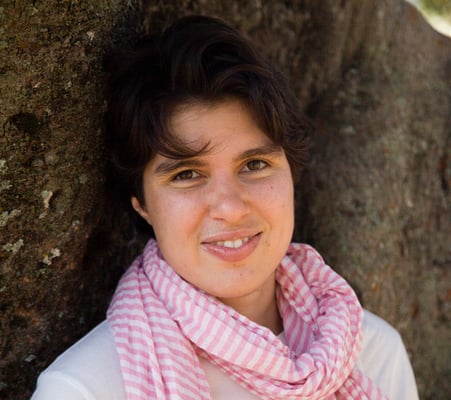“Environment” is so much more than trees or rivers or mountains—it is a relationship to what surrounds you, that, just like a relationship with a person, is informed by your identity, culture, experiences, needs, and more. Tapping into this ever-evolving personal connection to nature is not only a source of great nature writing, but also a tool for change. As poet and Nature & Environmental Poetry Competition Guest Judge Ellen van Neerven advises, “Write about the place you belong to, the place you long for, the place you live in, the place you love, the place you want to protect. As a poet, you have the opportunity to make a difference in how people think about their environment. It is our responsibility.”
Below, Ellen talks to us about their earliest writing memories, being an advocate for First Nations writing, their tips for developing self-trust as a writer, what they are looking for in a winning entry, and more!

You are not only a poet, fiction, and nonfiction writer, but you’re also an editor and educator. Can you share a little with our young writers about your path into such interesting work?
I fell in love with writing at a young age. I had a lovely year one teacher who encouraged me to write and illustrate my first story. From there, I said I wanted to be a writer. I was six. I’m really glad I never gave up on the dream of being a writer.
What became very apparent to me however was that it was also necessary to be an advocate for First Nations writing, and writing that spoke to some of the pressing issues like climate justice. That way, I was part of creating a world where my work and others could be understood and celebrated. And my impact went beyond the limits of the page.
When I was younger I took every opportunity I could get, whether this was writing reports, TV, many things, and that’s how I got to learn what I enjoyed and was good at. And that’s definitely not everything! But that’s healthy!
You are of Mununjali Yugambeh (South East Queensland, Australia) and Dutch heritage, and you write poems in both Yugambeh and English. What is your experience writing poetry in these different languages? How does your work change based on which language you are writing in?
For me, it’s important to express myself in Yugambeh as it is the language of my ancestors and is the true language of the place where my people are from. There are nuances in language that allow us to hold a deep knowledge of place. Regarding writing in English, there is no singular English. So the way I write in English is influenced by who I am and who I’m in relation to. I like leaning into my own unique form of expression.
In your reflection on your creative process, you note that “Often I don’t trust myself, / and I have to move forward despite this,” and also that “each phrase has to feel like it fits together, and as / the architect of the poem, only you will know this.” How can young poets build this self-trust and have the confidence to become the “architect” of their own work?
Don’t be afraid to experiment! I like to play with a poem as if I’m playing with Lego blocks. Move things around. Push boundaries. You will gain confidence from trying things out.
First Nations people have a deep connection to Country (their land). As Kakadu elder Bill Neidjie said “Our story is in the land…it is written in those sacred places.” How can our young writers deepen their own connection to the natural world around them? What role does poetry and writing play?
We write to honour place. Write about the place you belong to, the place you long for, the place you live in, the place you love, the place you want to protect. As a poet, you have the opportunity to make a difference in how people think about their environment. It is our responsibility.
What are you looking for in a winning nature poem, and what tips do you have for our young writers as they start writing their poems?
I would like to see bold, brave, imaginative writing that is layered and considered. My advice would be to write from the heart, this will shine through. And draft, do a few drafts. Read your poem aloud. Make your poem the best you possibly can before you submit.





